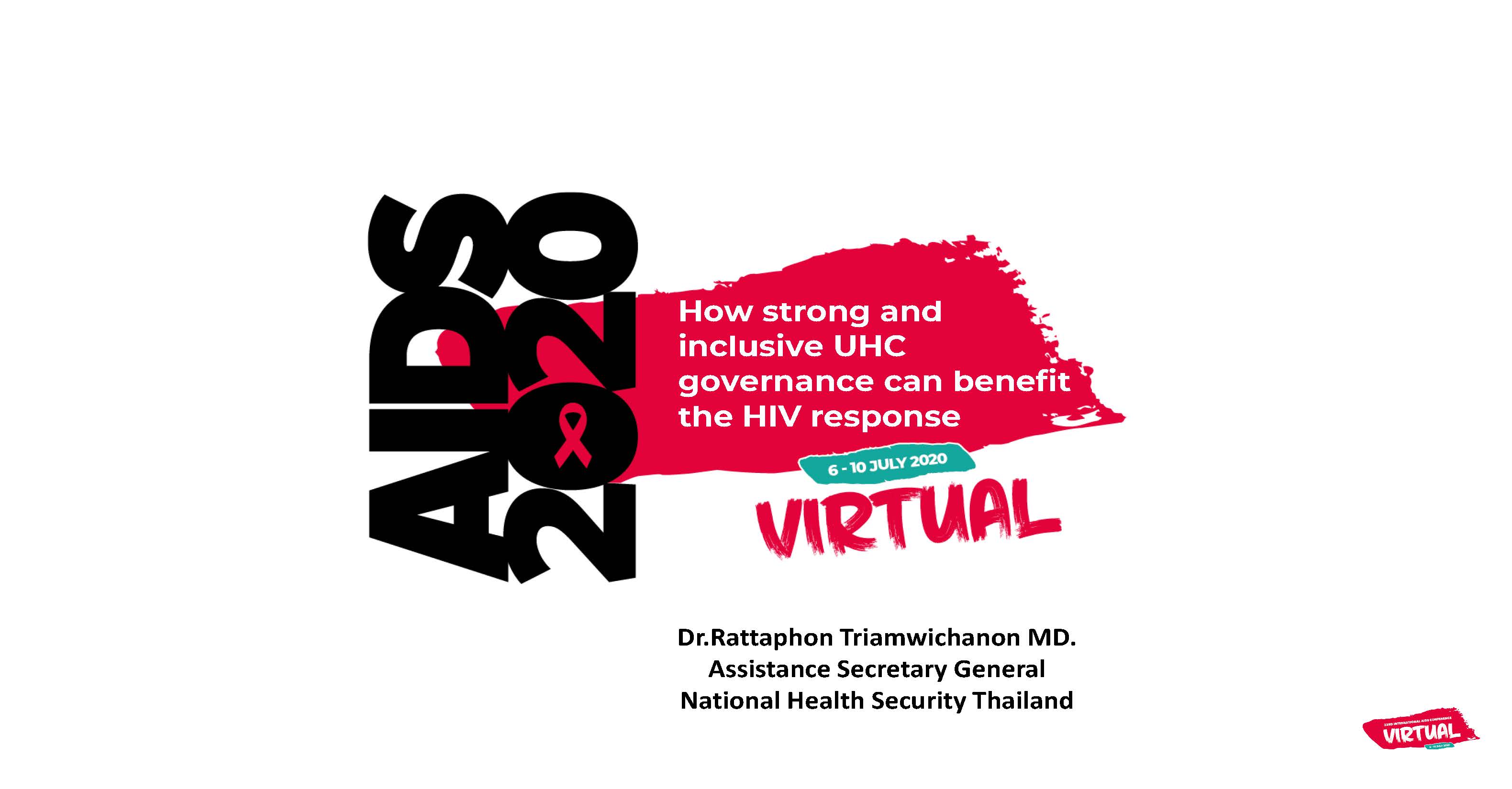
- Home
- DescriptionNews
Thailand integrates HIV response into UHC
.JPG)
"Strong and inclusive UHC governance with a resilient health system can benefit all health response including HIV," said Dr. Rattaphon Triamwichanon, Assistance Secretary-General of National Health Security Office (NHSO), Thai government agency running one of Thai health benefit schemes Universal Coverage Scheme (UCS).
Spoke in an online panel "Achieving the end of AIDS and realizing UHC by 2030: what will it take?" held by Bill and Melinda Gates Foundation on 8 July, Dr. Rattaphon said that the Thai government had implemented HIV and AIDS intervention programs through health benefit schemes that targeted different population groups.
Currently, Civil Servant Medical Benefit Scheme covers around five million civil servants and their family members. The other 10 million Thai and migrant workers in the private sector have benefited from Social Security Scheme.
UCS, introduced in 2002, provides free healthcare access to 49 million people who are not eligible for the other two health benefit schemes.
Each scheme offered free antiretroviral drug and treatment to HIV and AIDS patients, said Dr. Rattaphon, which is a result of a robust social movement calling for healthcare access for all.
Thai government started HIV intervention in 1992 with the launch of "the 100% condom program". Supported by the Global Fund, the government began providing antiretroviral medications to people living with HIV in 2006.
Soon NHSO included free antiretroviral drugs in UCS benefits package, operators of other healthcare schemes followed. Thai government also established the National AIDS Committee to implement a strategy that aims for HIV elimination by 2030.
Every progress of HIV response has engaged all stakeholders including HIV patients and non-governmental organization representatives.
"HIV response is not only [an item in UHC's] benefits package. But it also about the affordability, payment method, and adequacy of provisions to ensure effective service coverage," said Dr. Rattaphon.


